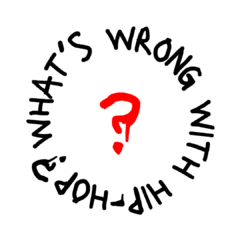If hip-hop were a person, it would be a complex character, grappling with its identity and self-worth amidst a sea of contradictions. Once a vibrant expression of resilience, creativity, and community, hip-hop now finds itself at a crossroads, wrestling with questions of authenticity and self-hatred. As it looks in the mirror, the reflection reveals a culture that has often internalized societal disdain, leading to a troubling narrative that begs the question: Is hip-hop self-hating?
In its early days, hip-hop emerged as a revolutionary force, a voice for the marginalized and oppressed. It celebrated community, creativity, and the struggle for equality. But as time passed, hip-hop began to commercialize, morphing into an entity that, at times, seems to reject its own roots. The glorification of materialism, violence, and misogyny within certain segments of the genre reflects a disconnection from its foundational ideals. This shift raises a critical question: has hip-hop begun to hate itself by perpetuating stereotypes that undermine its cultural significance?
From a modern perspective, hip-hop often engages in self-destructive behaviors that mirror the societal issues it once fought against. The pervasive themes of violence and degradation in many contemporary lyrics serve as an expression of self-hatred, where artists sometimes seem to revel in their pain rather than uplift their communities. This internalized oppression is echoed in the way hip-hop artists address their relationships with women. Instead of celebrating the strength and contributions of women, many tracks objectify and demean them, reflecting a deeper struggle with identity and respect.
Moreover, hip-hop’s obsession with material wealth can be seen as a coping mechanism for a culture that has faced systemic inequality. Artists often flaunt their success, using it as a shield against the harsh realities of their past. Yet, this celebration of wealth can devolve into a hollow pursuit, emphasizing status over substance. It creates a cycle of self-hatred, where the pursuit of material gain overshadows the true essence of hip-hop—a movement rooted in community and shared experiences.
As hip-hop grapples with these contradictions, it also faces a unique challenge: the influence of social media. The digital age has amplified voices and opinions, often leading to harsh criticism from both within and outside the culture. Hip-hop artists, scrutinized for their choices and messages, may feel the pressure to conform to a narrative that does not align with their true selves. This external pressure can foster a sense of self-hatred, as artists struggle to navigate their identities in a landscape that often values shock over authenticity.
However, amidst this turmoil, there is hope. A new generation of hip-hop artists is emerging, determined to reclaim the narrative and address the self-hatred that has permeated the culture. They are using their platforms to challenge stereotypes, promote self-love, and uplift their communities. These artists are not only acknowledging the pain within hip-hop but also actively working to heal it. They remind us that hip-hop can be a powerful tool for change, capable of breaking the cycle of self-hatred and fostering a sense of unity and purpose.
In conclusion, if hip-hop were a human being, it would embody the struggles of a complex individual wrestling with self-hatred while yearning for redemption. The journey of hip-hop is one of reflection, growth, and healing. By confronting its internalized issues and embracing a more authentic narrative, hip-hop can move towards a future where it celebrates its roots, uplifts its community, and dismantles the self-hatred that has plagued it. The power to redefine hip-hop lies within its community—an opportunity to reshape the culture into one that not only honors its past but also cultivates a more positive and inclusive future.
